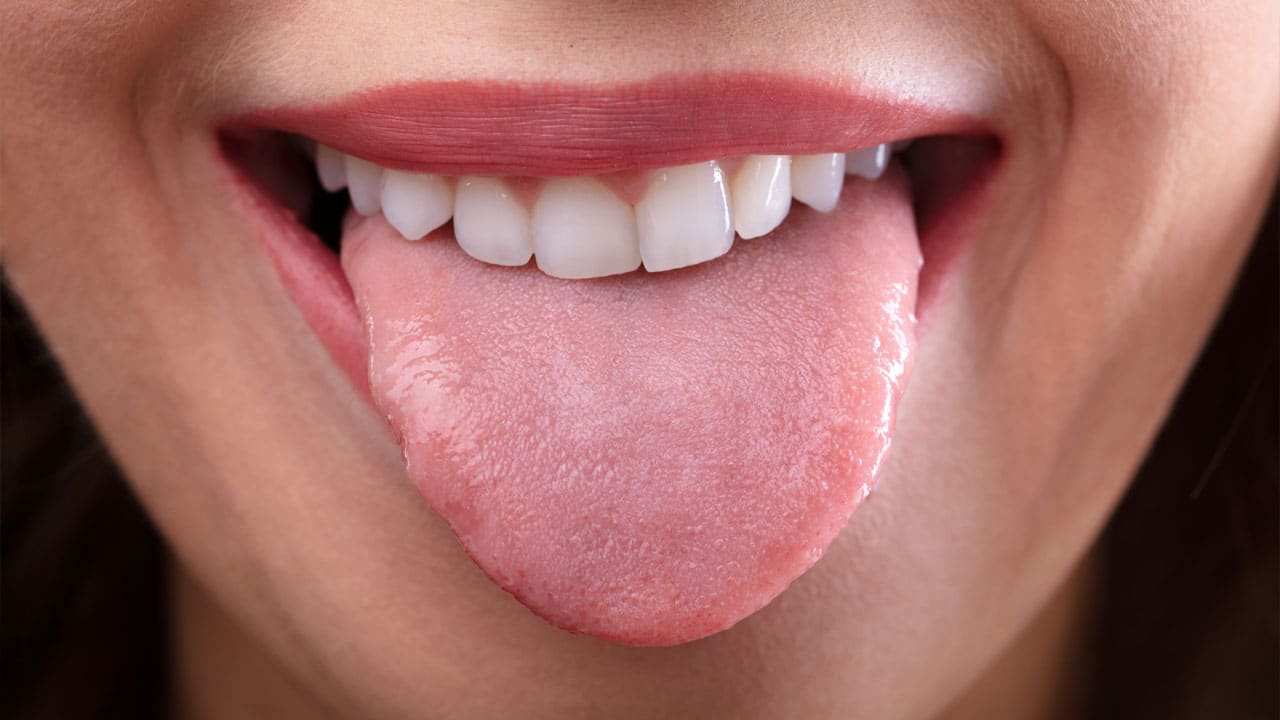
When it comes to oral health, your tongue is more than just a muscle that helps you taste your favorite foods. It can also be an indicator of your overall oral health. Changes to the color, coating, shape, and texture of your tongue can be a sign of an underlying health issue.
Learn what your tongue can tell you and your dentist about your health.
The Color of Your Tongue
Your tongue’s color can vary depending on your diet, lifestyle habits, and overall health. A healthy tongue is pink, though the shade can vary from light to dark. Any tongue color other than pink may indicate an underlying health condition. Some of the following tongue colors can indicate certain health conditions:
- Black: A black tongue is usually caused by the buildup of bacteria, debris, and dead cells on the tongue’s surface. This condition is known as black hairy tongue and can occur due to poor oral hygiene, smoking, medication use, radiation therapy, and certain medical conditions like diabetes.
- Blue: A blue tongue can indicate poor circulation or oxygen deprivation. It could also be a side effect of medication or a sign of a more serious condition, such as cyanosis or methemoglobinemia.
- Red to Purple: A red or purple tongue could be a sign of a vitamin deficiency, such as B12 or folic acid deficiency. It could also indicate a bacterial or viral infection, inflammation, or trauma to the tongue.
- Orange: Poor oral hygiene is the most common cause of an orange tongue. It could also result from dry mouth, taking certain antibiotics such as rifampin, or eating foods high in beta-carotene, like sweet potatoes.
- Yellow: A yellow tongue could indicate dehydration, oral thrush, or a medical condition, such as jaundice, psoriasis, or liver disease.
- White: A white tongue may signify oral thrush, a fungal infection due to a weakened immune system, antibiotic use, or diabetes.
The Coating on Your Tongue
The coating on your tongue can also provide clues about your well-being. Some common tongue coatings include:
- Thick coating: A thick coating on your tongue could indicate poor oral hygiene, oral thrush, or leukoplakia.
- Yellow coating: A yellow coating on your tongue could mean an infection or inflammation in your mouth. It could also be a side effect of medication use, such as bismuth subsalicylate-containing medicines, or a sign of dehydration.
- Gray or black coating: A gray or black coating signifies a fungal infection or an accumulation of dead skin cells. It could also be a side effect of medication use or a sign of a more serious condition, such as oral cancer.
- Thick white coating: A thick white coating on your tongue could be oral thrush, leukoplakia, or bacterial infection. It could also indicate poor oral hygiene or a weakened immune system.
The Shape and Texture of Your Tongue
The shape and texture of your tongue can also reveal important information about your health.
- Bumps or ulcers: Bumps or ulcers on your tongue indicate a viral or bacterial infection, an allergic reaction, or a vitamin deficiency.
- Scalloped edges: Scalloped edges on your tongue can be a sign of teeth grinding, a misaligned bite, or sleep apnea. This is due to consistently pressing your tongue on your teeth to open up your airway or when clenching your teeth.
- Thin tongue: A thin tongue means a thyroid disorder or malnutrition.
- White or red bumps: White or red bumps on your tongue could be a sign of a viral or bacterial infection, oral cancer, or an allergic reaction.
What Your Tongue is Trying to Tell You
Your tongue can provide important clues about your overall health. If you notice any changes to your tongue’s color, coating, shape, or texture, it’s important to consult a dental professional.
Don’t ignore your tongue’s signals. If you notice any changes or abnormalities, schedule an appointment with Caputo Dental today. At Caputo Dental, we offer comprehensive dental care, including oral exams, cleanings, and treatments for a wide range of dental issues to help you achieve and maintain optimal oral health.